Conduct Unbecoming (1975), which I came across by chance, is one cracking little gem of a picture. Released by British Lion (think The Wicker Man (1973) and Don’t Look Now [1973]), and directed by Michael Anderson of Dam Busters (1955) fame, with a soundtrack by Stanley Myers, it’s based on Barry England’s Broadway play of 1969. Some enlightened soul has posted Conduct Unbecoming on YouTube in High Definition. That’s a good thing.
The film is set in 1878. Two newly commissioned subalterns, fresh from Sandhurst, journey to India to join their regiment, a fictitious light cavalry unit in the British Indian army. Mr. Drake (Michael York) is earnest, naive and well-meaning. A man with a sense of honour. In contrast, Mr. Millington (James Faulkner) is an urbane, hard-drinking, cynical and aristocratic sophisticate. Both men are under pressure to live up to the reputation of their fathers — former officers of the regiment, but in the case of Mr. Millington, a general. While young Mr Drake’s as keen as Colman’s mustard, rakish Mr. Millington can’t wait to resign his commission and return to the enjoyable fleshpots of London.
And then Mrs Scarlett (Susannah York), an attractive middle-aged widow with a fast reputation, accuses Mr. Millington of ‘a most cowardly assault’ — a torn dress and all that comes with it — during a regimental drinks party. An ‘unspeakable crime amongst officers and ladies’ as the sensationalist blurb on the film poster puts it. This sets things up for a gripping court martial — presided over by an unofficial subaltern’s court, to save the regimental honour, with a faltering, out-of-his-depth Mr. Drake attempting to defend the couldn’t care less Millington — against all odds. It’s splendid stuff.
Michael York steals the show. In a lovely, sensitive, nuanced performance which lifts what might have otherwise been a relatively run-of-the-mill film into something else. But even for 1975, the production values are curiously old-fashioned. Apart from some spectacular sequences at the beginning, a cavalry parade shot on location and a genuine Indian locomotive steaming its way across a dusty plain, plus snippets of action on the North West Frontier, most of the film is shot on set, studio-bound, with painted backdrops and stagey garden trellis, and a bit of good old back projection. But the uniforms and colour are gorgeous, and the sets are splendid — Shepperton’s finest: silver trophies, stuffed tigers, potted palms, cracked leather armchairs, ebony chess sets, portraits of Queen Victoria, horseplay in the officer’s mess.
And Michael York is backed up by a terrific cast, an extraordinary ensemble of talent: Trevor Howard as the splendid buffer of a Crimean Colonel, Richard Attenborough as a bewhiskered Major, Michael Culver (Herr Luftwaffe Major Brandt in Secret Army) as an uptight martinet of a First Lieutenant, Christopher Plummer, who looks like he’s been under a sunlamp, as a pukka Major; and David Robb (Downton Abbey) as an elegant, sarcastic subaltern. Plus, the aforementioned Susannah York as the damsel in distress. Okay, Stacy Keach’s British accent is a bit dodgy at times, and despite Christopher Plummer looking the part, this ain’t his greatest performance — but otherwise, it’s cracking, top-notch, actorly stuff, as one might expect from a bunch of distinguished thespians, stars of both stage and screen.
I need to make a list of Michael York films. God, he was good. From the top of my head, there’s Accident (1967), and Zeppelin (1971), Cabaret (1972) and The Riddle of the Sands (1979) — and many, many others. I have yet to see The Strange Affair (1968), a crime drama in which he plays an unlikely policeman, which also stars Susan George and Jeremy Kemp, another two all-time favourites. And I need to track down England Made Me (1973), an adaptation of Graham Greene’s novel set in Nazi Germany, with She-Who-Can-Do-No-Wrong Hildegarde Neil, Roger Moore’s desirable wife in the terrific The Man Who Haunted Himself (1970) — probably Roge’s best performance.
Inevitably, as was the wont in the mid-1970s, Conduct Unbecoming was ‘novelised’ by Rupert Croft Cooke and released as a film tie-in mass-market paperback in Britain and America, including ‘exclusive photographs from the film’. In true pulp style, the cover of the British edition features Michael York bending over Susannah in the most suggestive position. I mean, really. Sensation-seekers watching the film on the strength of the paperback cover will most probably be disappointed. I love old film tie-in paperbacks and look out for them when, and as, I can. Often to be discovered yellowing in the hot sun. On a trestle table at the local garden fête or steam fair. Dog-eared and forgotten. Alongside that evocative smell of burgers, tomato ketchup and mown grass.
I watched Conduct Unbecoming (1975) on YouTube, where there’s an excellent quality recording with a High Definition option. It’s also available on dailymotion.com, on DVD and on Blu-ray. Perfect Sunday afternoon viewing. A Lime Juice and Gin for this one.
Checking the archive, I’m reminded that the very first post on WEEKEND FLICKS. Cinema for Grown Ups dates from December 2023. The great idea (which came to me in the bath) was to create a feel-good film newsletter for subscribers to enjoy, and hopefully use, over the weekend — inspired by the old LWT ident — when, at Friday teatime, earnest Thames Television handed over to the racier London Weekend. So here’s a quick word about the paid subscription, which costs £5 a month or £50 a year. Paid subscribers receive their own special post on Friday mornings, special additional posts (when I can, and please bear with me on that), and access to the entire archive — now running at some 150 films. The Sunday morning posts are free and can be read by anybody and everybody. I’ll be back on Friday with another recommendation. No idea what I’m going to do. I need to get my thinking cap on, but we might well go down the Michael York route. So many brilliant films to choose from.




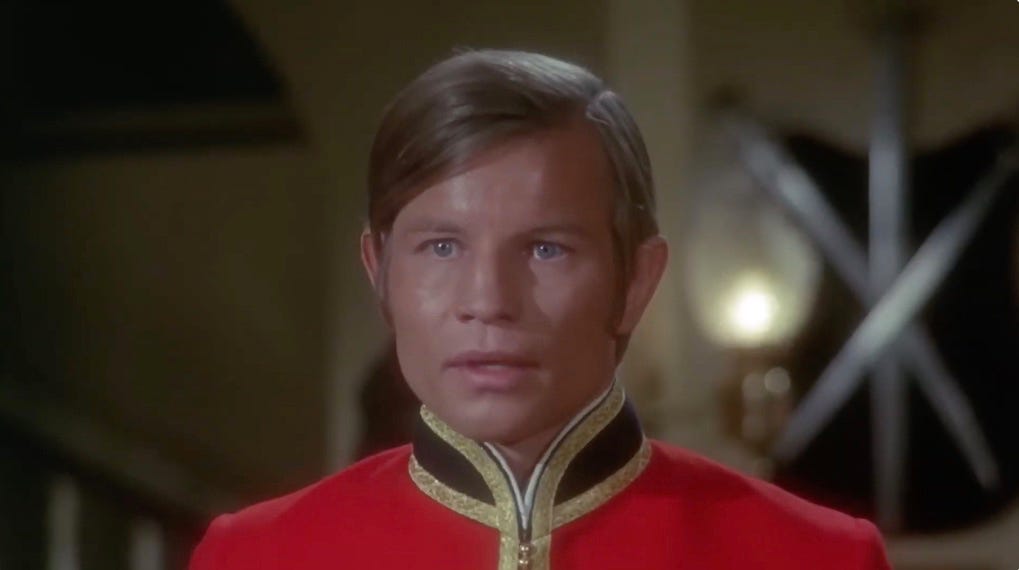

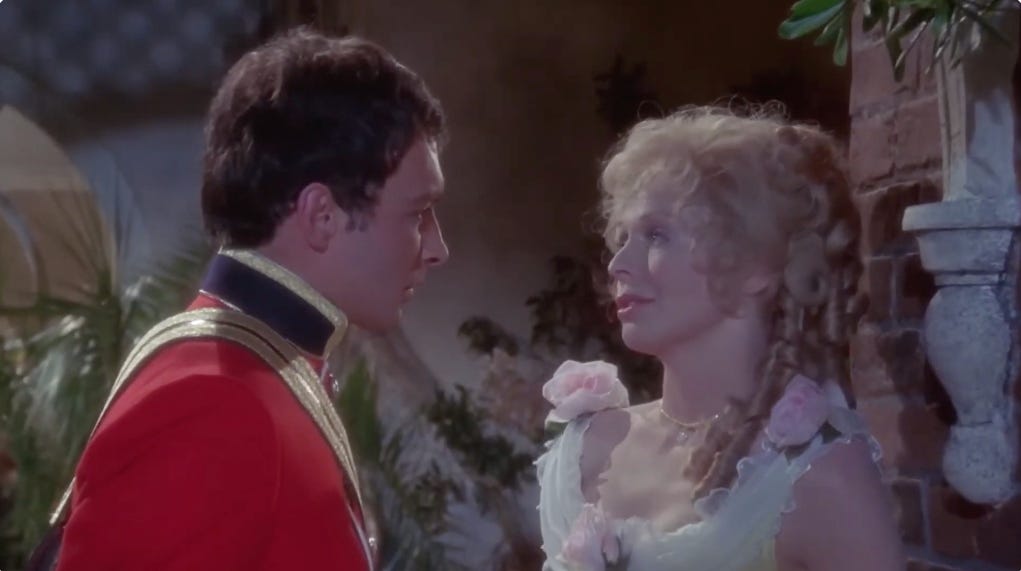

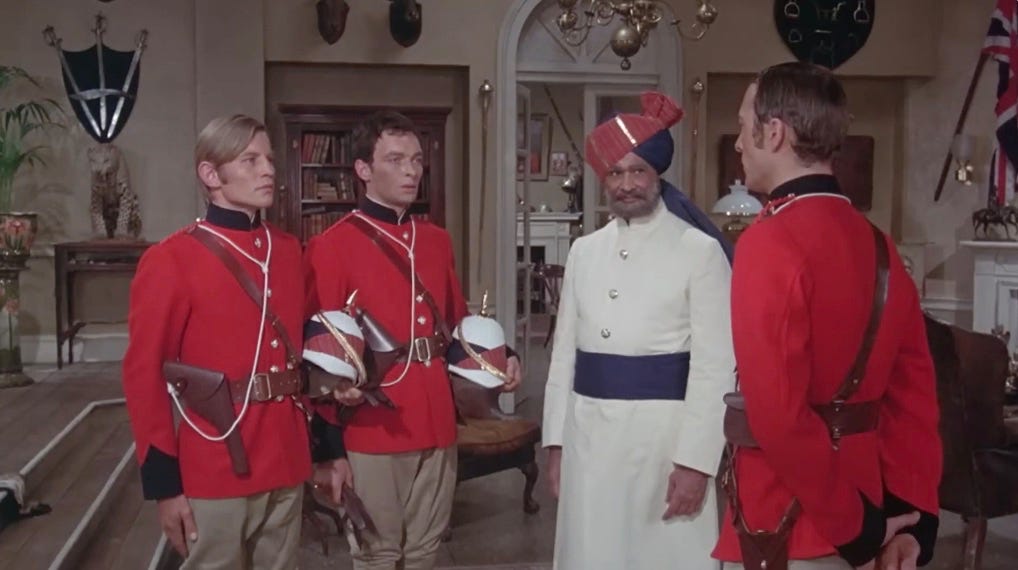
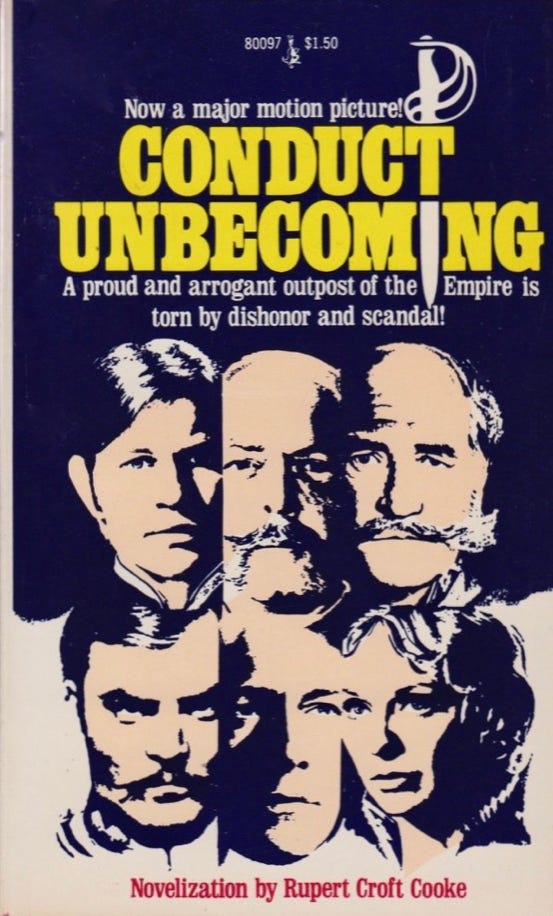
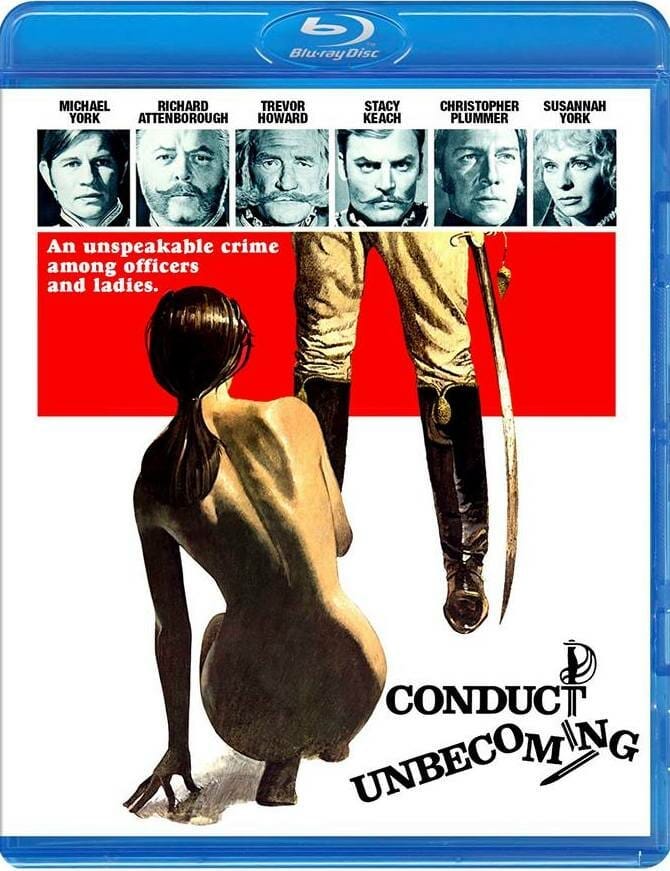
Thanks watched it, vaguely remember it But wooden in places, yes Christopher Plummer was phoning it in. ‘To the Regiment, I wish I was there!’
The Man Who Haunted Himself was great.